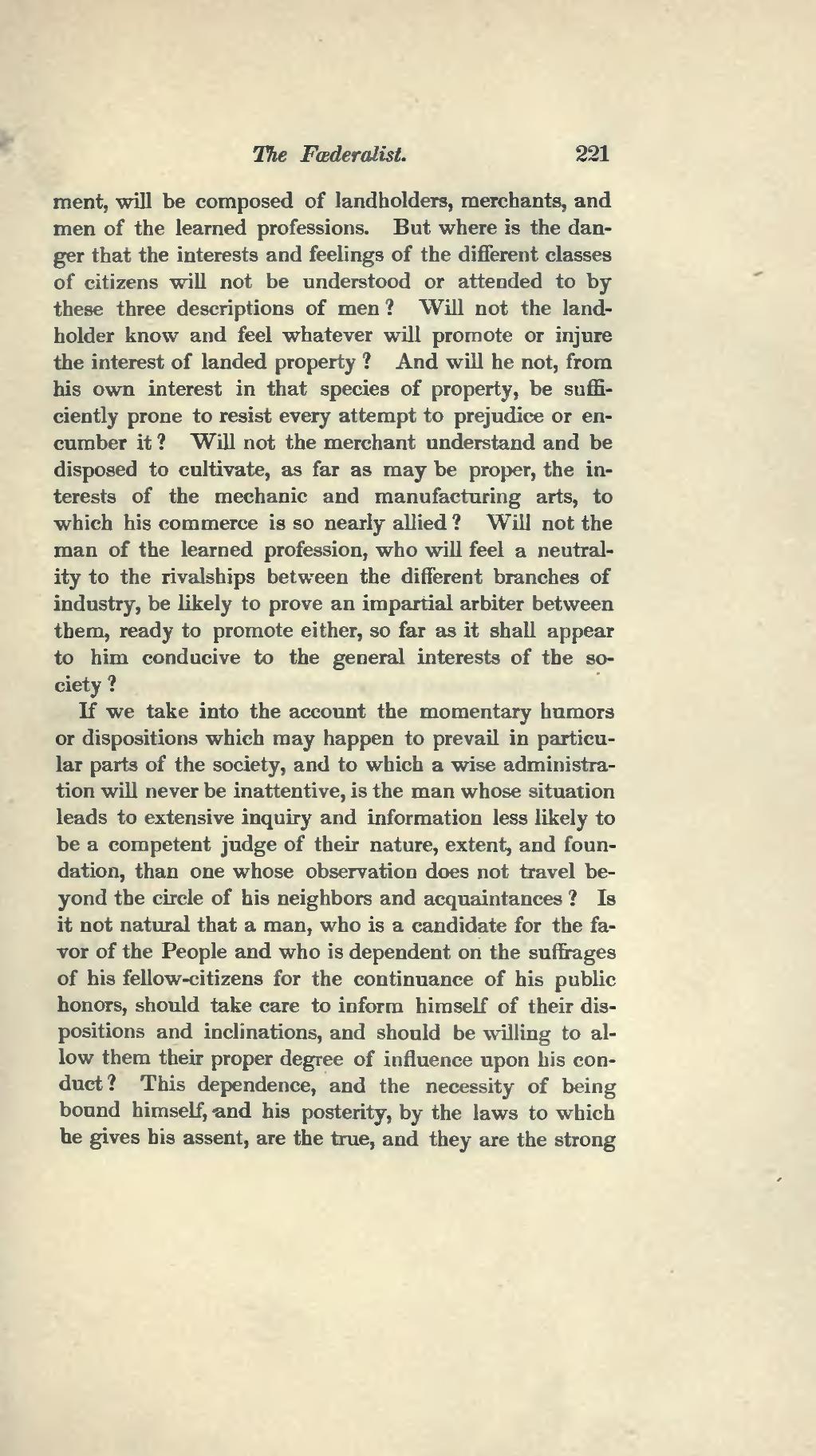ment, will be composed of landholders, merchants, and men of the learned professions. But where is the danger that the interests and feelings of the different classes of citizens will not be understood or attended to by these three descriptions of men? Will not the landholder know and feel whatever will promote or injure the interest of landed property? And will he not, from his own interest in that species of property, be sufficiently prone to resist every attempt to prejudice or encumber it? Will not the merchant understand and be disposed to cultivate, as far as may be proper, the interests of the mechanic and manufacturing arts, to which his commerce is so nearly allied? Will not the man of the learned profession, who will feel a neutrality to the rivalships between the different branches of industry, be likely to prove an impartial arbiter between them, ready to promote either, so far as it shall appear to him conducive to the general interests of the society?
If we take into the account the momentary humors or dispositions which may happen to prevail in particular parts of the society, and to which a wise administration will never be inattentive, is the man whose situation leads to extensive inquiry and information less likely to be a competent judge of their nature, extent, and foundation, than one whose observation does not travel beyond the circle of his neighbors and acquaintances? Is it not natural that a man, who is a candidate for the favor of the People and who is dependent on the suffrages of his fellow-citizens for the continuance of his public honors, should take care to inform himself of their dispositions and inclinations, and should be willing to allow them their proper degree of influence upon his conduct? This dependence, and the necessity of being bound himself, and his posterity, by the laws to which he gives his assent, are the true, and they are the strong

